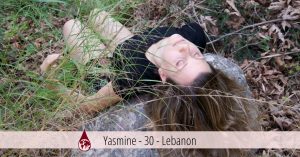
Discovering your menstruation as a spiritual practice
Yasmine understands her menstruation as a spiritual practice and shares in this interview how she is connecting more with her own body through cycle awareness.
Menstruation around the world is series from Vulvani that attempts to show the diversity of menstrual experiences around the world. We portray people from different countries with their personal stories. Let us explore the journey towards embracing your period together.
Mara lives in Madrid, Spain, but was born and raised in Brazil. In this interview she takes us along, in a very honest way, on her long journey towards more self-acceptance, love and embracing your period. Dear Mara, thank you from the bottom of my heart for your openness and the great interview!
Name: Mara
Age: 25
Gender / Sex: Woman
Country of birth: Brazil
Home: Madrid, Spain
Degress + Job: Creative woman
Age at first period: 12
Favorite period product: Menstrual cup
Cost per menstruation: Seven years ago I paid the equivalent of 20 euros for a menstrual cup
Contraception: Perception of fertility and condom
I grew up until the age of 10 in a very simple culture and in the countryside where I did not know about menstruation,. Until the age of 10 I did not even know that it existed. Nor in the following years was there any talk of menstruation, either about the body or about sexuality, it was something totally taboo. To this day in my family I see that it is something that is totally treated as taboo. Perhaps because it is a very rural culture, where most people, including women, have not had any access to culture or education. A closed culture lost in time, where the body and sexuality are not something to talk about. I think that in general in Brazil, menstruation is as taboo as sexuality itself.
What I learned about menstruation was in schools, but I have few memories of classes on reproduction and sexuality. When I was a child I heard that the day I bled, no one should know, nor could I let men perceive that I was bleeding. That was part of a violent culture, where bleeding was already a reason to be raped.
My first period was horrible. I was no longer living with my biological family. At 10 I was adopted by a lady, who actually treated me as a domestic employee. But speaking of this day, I was living in a community in Rio De Janeiro, I had just turned 12 years. It was August 22, 2008, I had turned 12 on July 28. In the house I lived in, there was a lack of water and I needed to go to the bathroom, so I went to my little friend Amanda’s house. When I took off my clothes and saw the little bloodstain, I felt despair, fear, shame, and a sense of abandonment. I remember asking Amanda not to tell anyone, and before I could go outside, Amanda was screaming at everyone that I had bled. I felt betrayed, then everyone knew that I was already a “woman”, everyone without exception, and for the first time I felt violated without being touched.
‘When I took off my clothes and saw the little bloodstain, I felt despair, fear, shame, and a sense of abandonment.’
Als ich meine Klamotten auszog und den kleinen Blutfleck sah, fühlte ich Verzweiflung, Angst, Scham und ein Gefühl der Verlassenheit. Ich erinnere mich, dass ich Amanda bat, es niemandem zu sagen. Doch bevor ich nach draußen gehen konnte, brüllte Amanda zu allen, ich hätte geblutet. Ich fühlte mich verraten, denn alle wussten, dass ich bereits eine „Frau“ war. Ohne Ausnahmen alle. Und zum ersten Mal fühlte ich mich missbraucht, ohne berührt zu werden.
Today I made peace with my blood, with myself and with my wounds, caused by a misogynist and violent culture. Over the past few years I have approached and healed myself through my blood. In the last 6 years, I have reestablished a peaceful and loving relationship with my menstrual blood. Today I love being a woman. I love having the awareness that I have today with my body and my bleeding, feel every month as this process occurs to finally bleed is something very precious. I believe that a woman can only live totally in peace when she can establish a peaceful and loving relationship with her blood and her body.
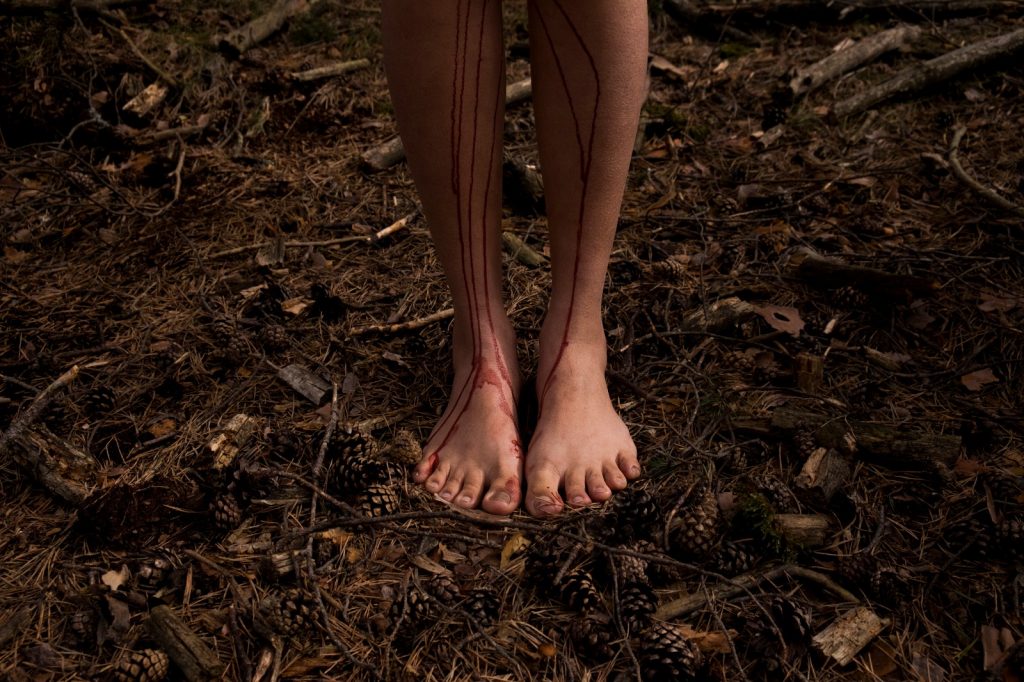
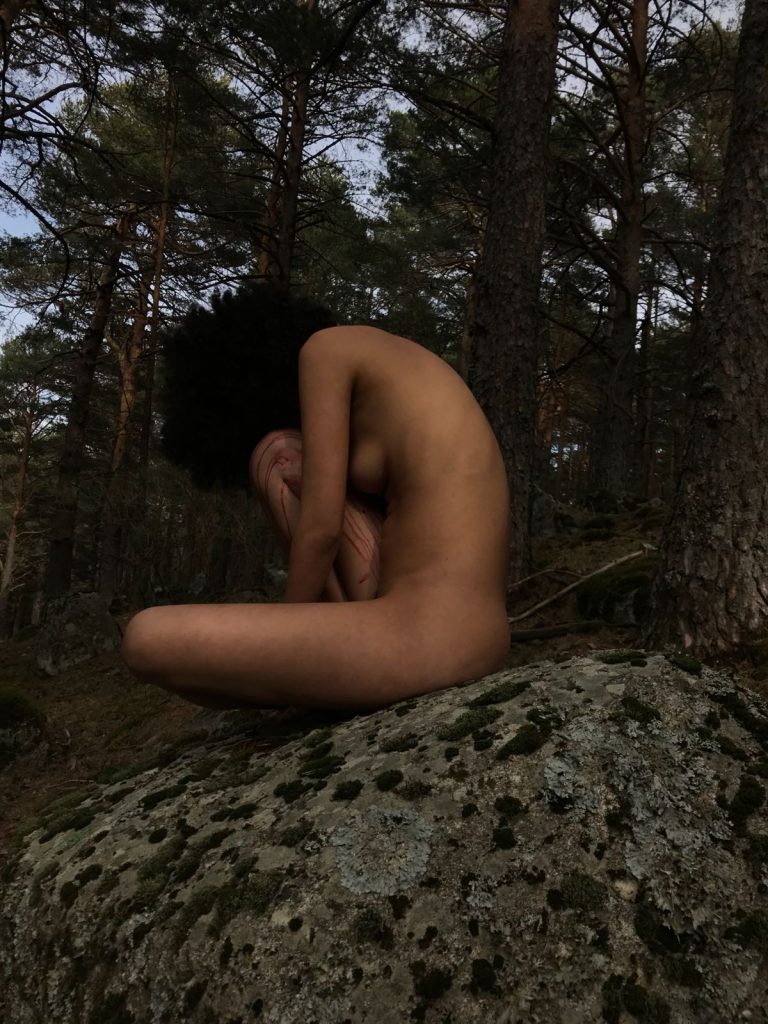
Photo credit: Mara
Before I started using the cup I used a disposable pad.
I usually paint, sometimes using my blood, sometimes I put it on the plants or sometimes I talk to it and thank it for being there, I like to touch it and feel it.
‘I feel the little dance in the uterus, but it is something totally smooth.’
Are you curious to try free bleeding and experience your period in a new way? Then our online course “Menstruation without products: Learn Free Bleeding” is perfect for you
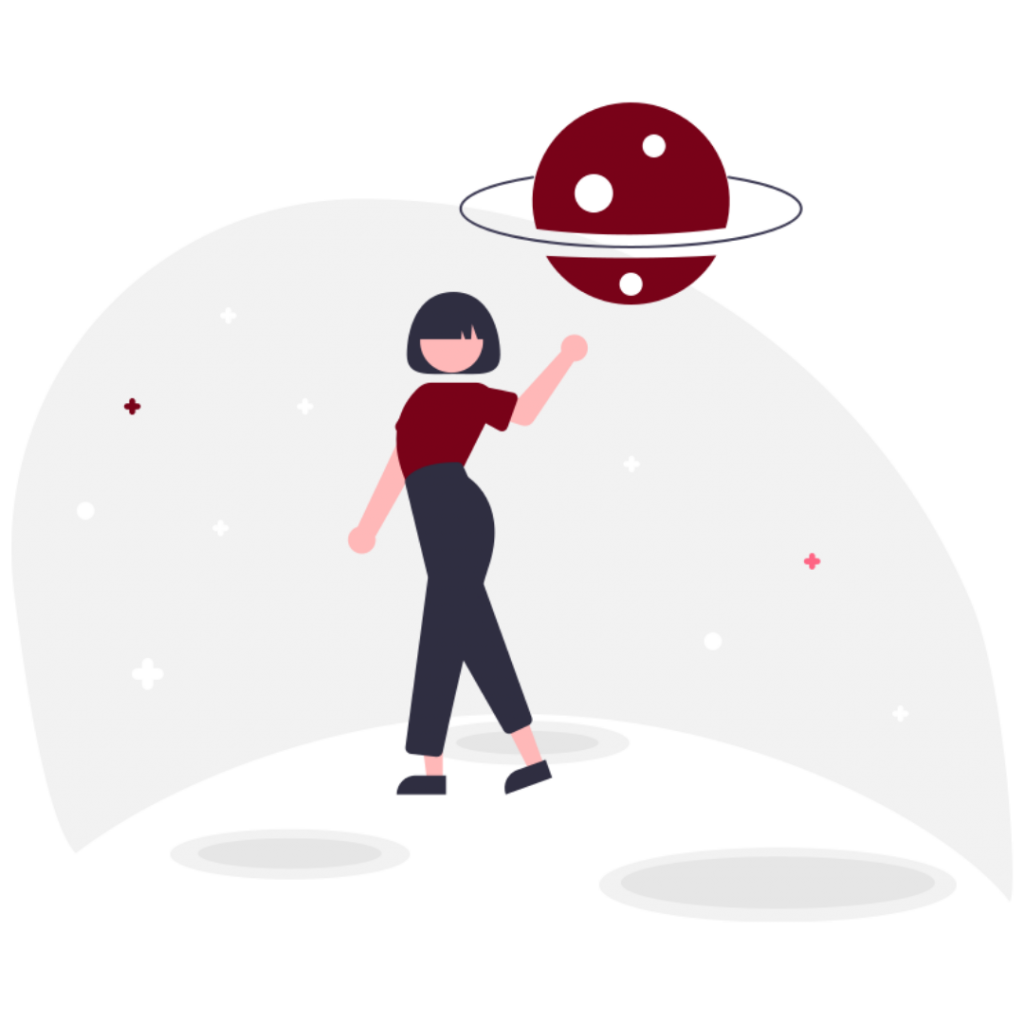
I’m a very lucky woman, I have no physical complaints. I feel the little dance in the uterus, but it is something totally smooth. The only thing you notice at each cycle is the move on an emotional level.
I talk about menstruation these days with everyone, because one of my greatest wishes is that menstrual blood be treated naturally and without any kind of taboo.
Once I met a guy, I invited him to my house and as I thought, we should have sex… until I asked him about my paintings, if he could imagine what they were made of and he answered no. When I told him, he answered: How disgusting. I quickly told him, get dressed and get out of my house. Until today, the boy does not understand why. Obviously, I would never, these days, have sex with a boy who tells me that he is disgusted by blood. And I never saw him again, even though he wrote to ask me what had happened, I just told him: think.
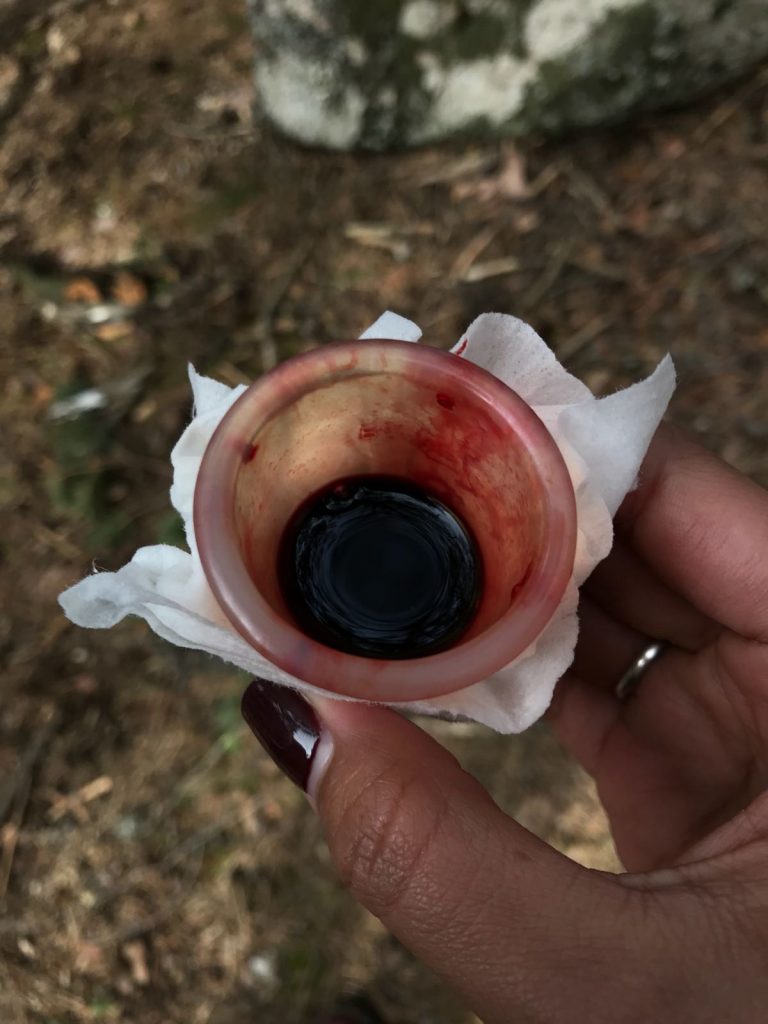
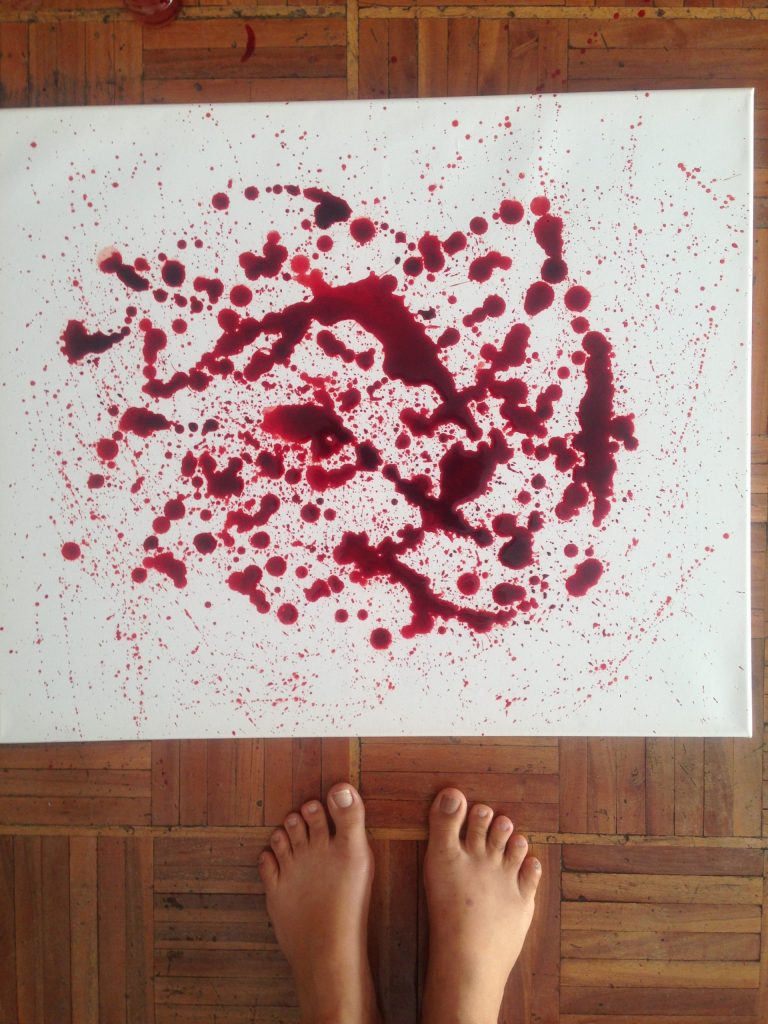
Photo credit: Mara
I think to change the world, we’re going to have to change a lot of things. Starting with breaking any taboos about the body, the female body mainly. I think it is very important to teach our girls the power within, and then maybe we will grow very aware of the power within that we have, being at peace with our world will be the most important revolution.
‘Being at peace with our world, will be the most important revolution.’
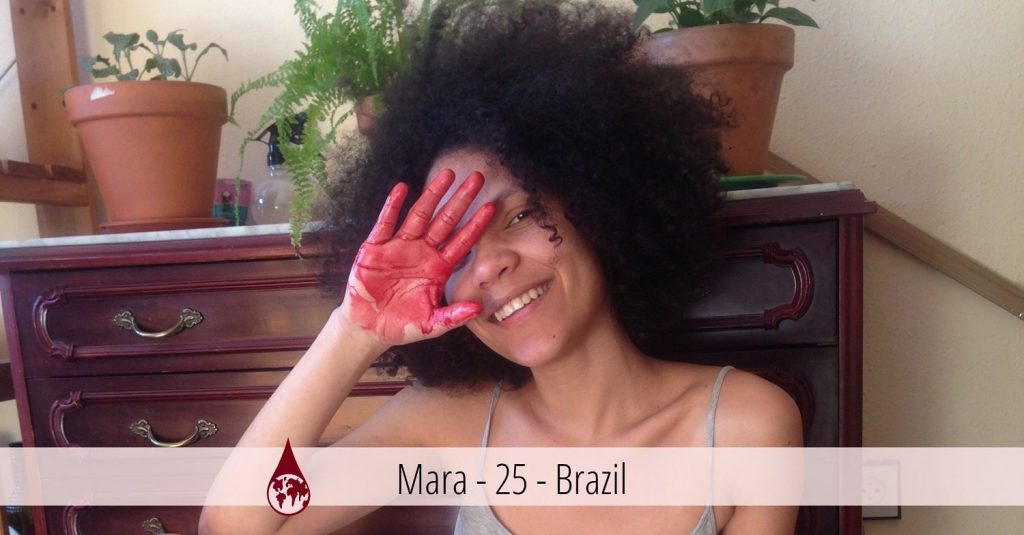
We hope to be able to present the portraits of menstruating people as varied and diverse as possible. And for this we need you – no matter how you feel about your own menstruation or where you come from! If you would like to be part of this series and share your personal experiences and thoughts about menstruation with us, please write us a message or simply fill out this questionnaire (anonymously is also possible). We are already looking forward to sharing your story with the Vulvani community!
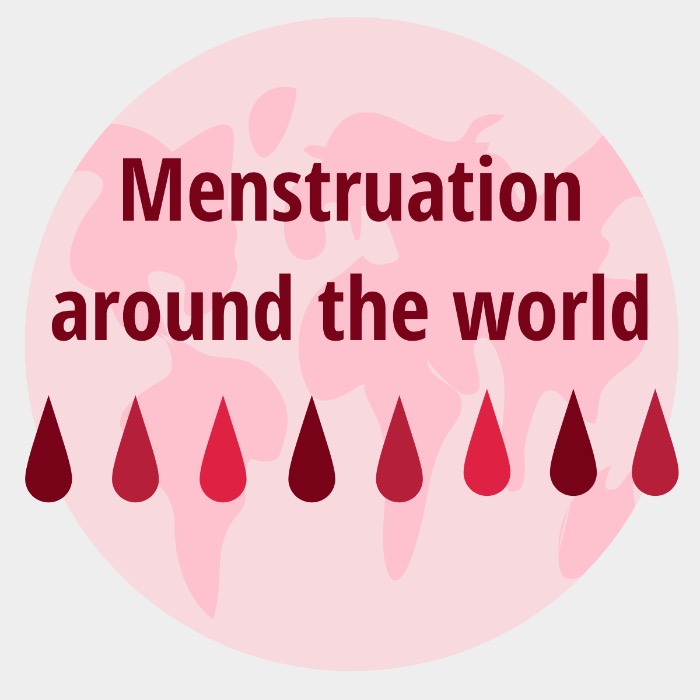
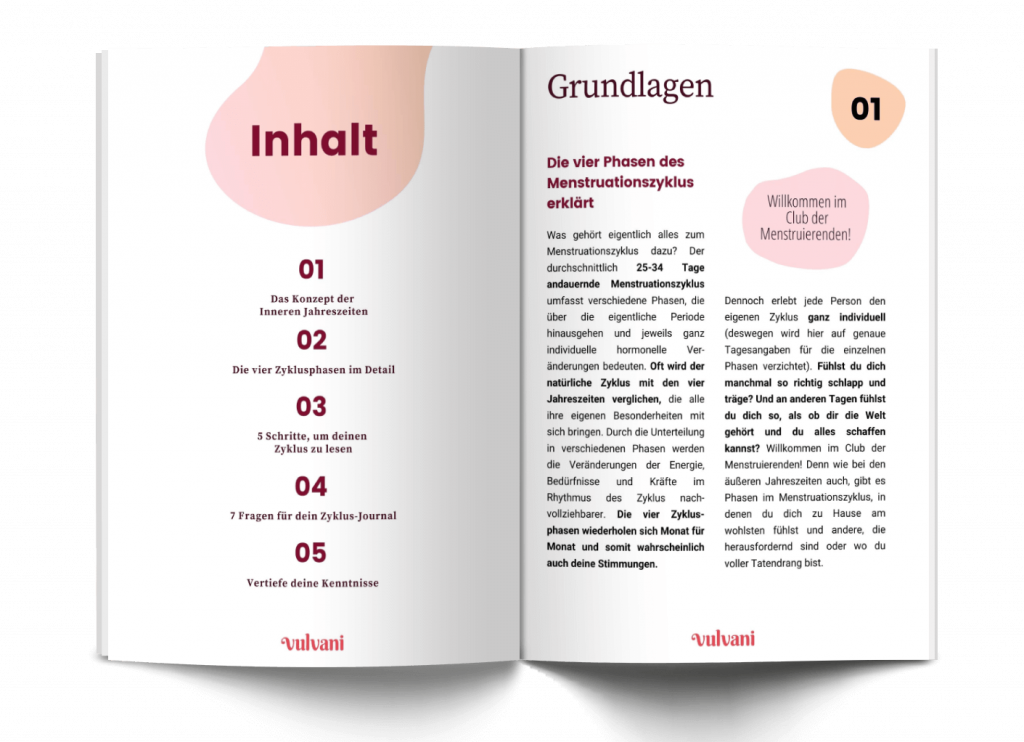


Yasmine understands her menstruation as a spiritual practice and shares in this interview how she is connecting more with her own body through cycle awareness.

What options are there for male birth control? Ailsa delivers an overview of what is available now, and what may come in the future.
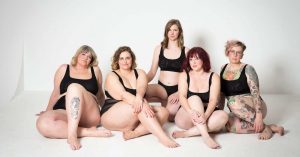
Sustainable underwear? The founders of TUKEA talk about fair labour conditions, body diversity and body literacy.
…and empower countless women to make empowered choices about their bodies!

